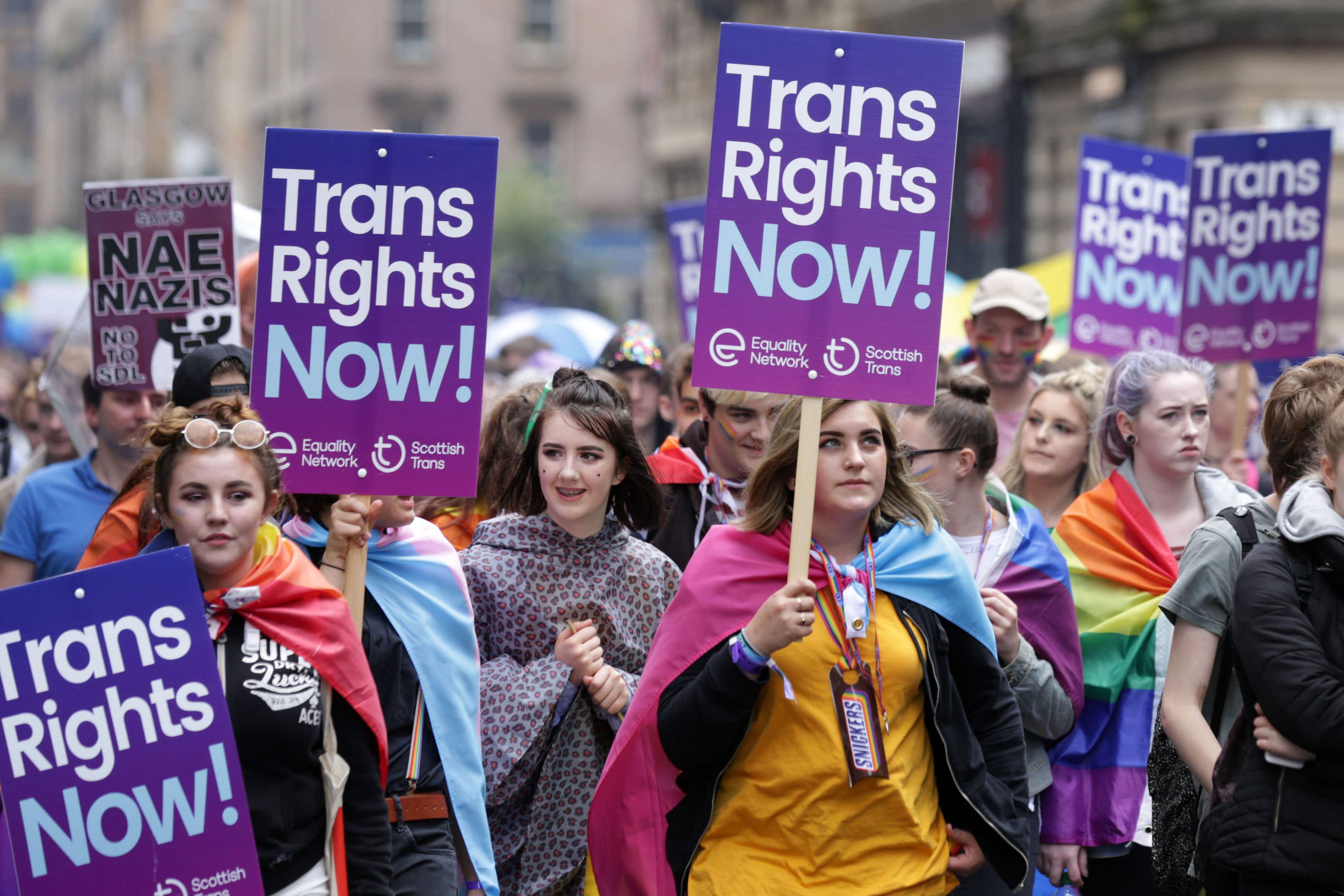Controversial gender reforms expected to pass at Holyrood
The Bill will make it easier for trans people to obtain a gender recognition certificate, but critics are concerned about its impact on women.

Your support helps us to tell the story
From reproductive rights to climate change to Big Tech, The Independent is on the ground when the story is developing. Whether it's investigating the financials of Elon Musk's pro-Trump PAC or producing our latest documentary, 'The A Word', which shines a light on the American women fighting for reproductive rights, we know how important it is to parse out the facts from the messaging.
At such a critical moment in US history, we need reporters on the ground. Your donation allows us to keep sending journalists to speak to both sides of the story.
The Independent is trusted by Americans across the entire political spectrum. And unlike many other quality news outlets, we choose not to lock Americans out of our reporting and analysis with paywalls. We believe quality journalism should be available to everyone, paid for by those who can afford it.
Your support makes all the difference.Controversial gender reforms are likely to pass at Holyrood on Wednesday.
The Gender Recognition Reform (Scotland) Bill will remove the need for a medical diagnosis of gender dysphoria currently required to receive a gender recognition certificate (GRC).
It would also lower the minimum age for applicants to 16 and drop the time required for an applicant to live in their acquired gender from two years to three months – six for people aged 16 and 17 – though with a three-month reflection period.
MSPs will consider the last of the 153 amendments lodged at stage three of the Bill – following a marathon session of parliament on Tuesday that saw members sitting until just after midnight – before a final vote on Wednesday afternoon.
On Tuesday, MSPs backed a change tabled by SNP MSP Gillian Martin to the law which meant anyone subject to a sexual harm prevention order or sexual offences prevention order would not be allowed to seek a GRC.
Meanwhile, a push by fellow SNP MSP to ensure applications would be paused if an applicant was charged with a sexual offence until their case was disposed off divided members by 61 votes to 61 – as is customary Deputy Presiding Officer Liam McArthur used his casting vote against the change.
The sitting on Tuesday was marred by protests from the public gallery, with opponents to the Bill shouting “shame on all of you” as another amendment that would make it harder for sex offenders to apply for a GRC was voted down.
It also appeared the Scottish Tories were attempting to make the proceedings take as long as possible, tabling four amendments to the agenda from four members, forcing a vote on the timetable for the consideration of amendments, raising a further motion which MSPs had to vote on and a number of points of order – all before the debate on the amendments had started.
The party also opted to push amendments to a vote, even when the proposer of the changes did not.
The Bill has been one of the most controversial in Holyrood since devolution, with opponents raising concerns over its impact to the safety of women and girls.
But the Scottish Government insists the legislation will not impact the Equality Act, which allows for trans people to be excluded from single-sex spaces such as changing rooms and shelters, something that was affirmed by an earlier amendment from Labour’s Pam Duncan-Glancy.
Despite the controversy, the Bill is likely to pass on Wednesday due to its support within the SNP, Greens, Labour and Lib Dems.
But its passage could raise further disciplinary issues within the SNP, with seven MSPs from the ruling party voting against it – including minister Ash Regan, who was forced to quit – and two others abstaining at stage one.
Ms Regan said during the consideration of amendments that she would not be supporting the Bill, while fellow SNP MSP Kenneth Gibson hinted he would again rebel against the Bill, and Fergus Ewing and Michelle Thomson spoke in favour of amendments the Scottish Government opposed.
Speaking ahead of the final consideration of the Bill, Social Justice Secretary Shona Robison urged fellow MSPs to back the legislation.
I urge all members to vote in favour of these important reforms on what will be an historic day for equality in Scotland
“Today marks the culmination of a six-year process of consultation and policy development to simplify and improve the process for trans men and women to obtain legal recognition through a GRC,” she said.
“If parliament approves this Bill, it will be taking a significant step forward in creating a more equal Scotland, where trans people feel valued, included and empowered.”
She added: “Trans rights are not in competition with women’s rights, and as we have seen in the past, rights can be improved for everyone when those discriminated against and who face prejudice work together as allies.
“These reforms are supported by a majority in parliament and members of all parties. I urge all members to vote in favour of these important reforms on what will be an historic day for equality in Scotland.”